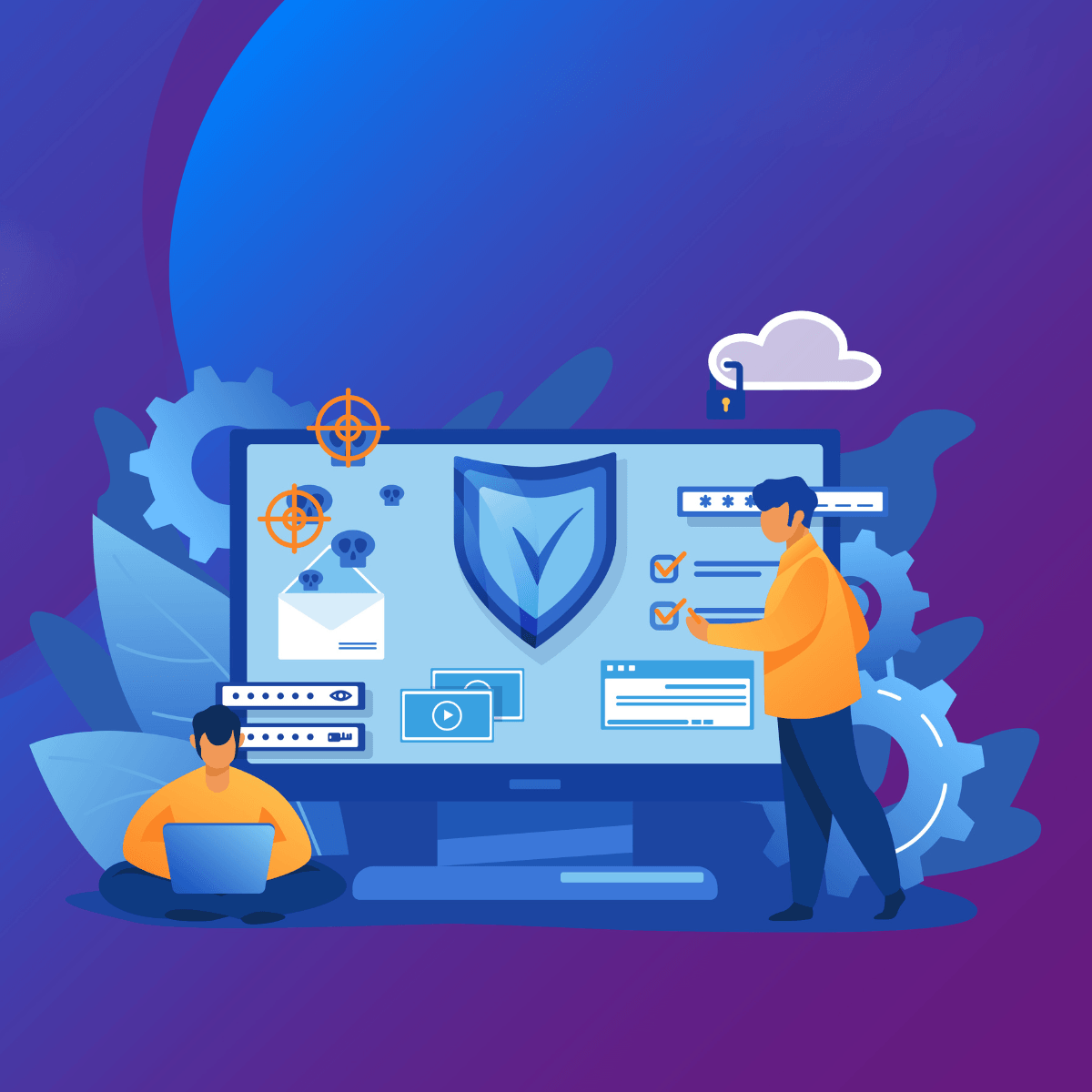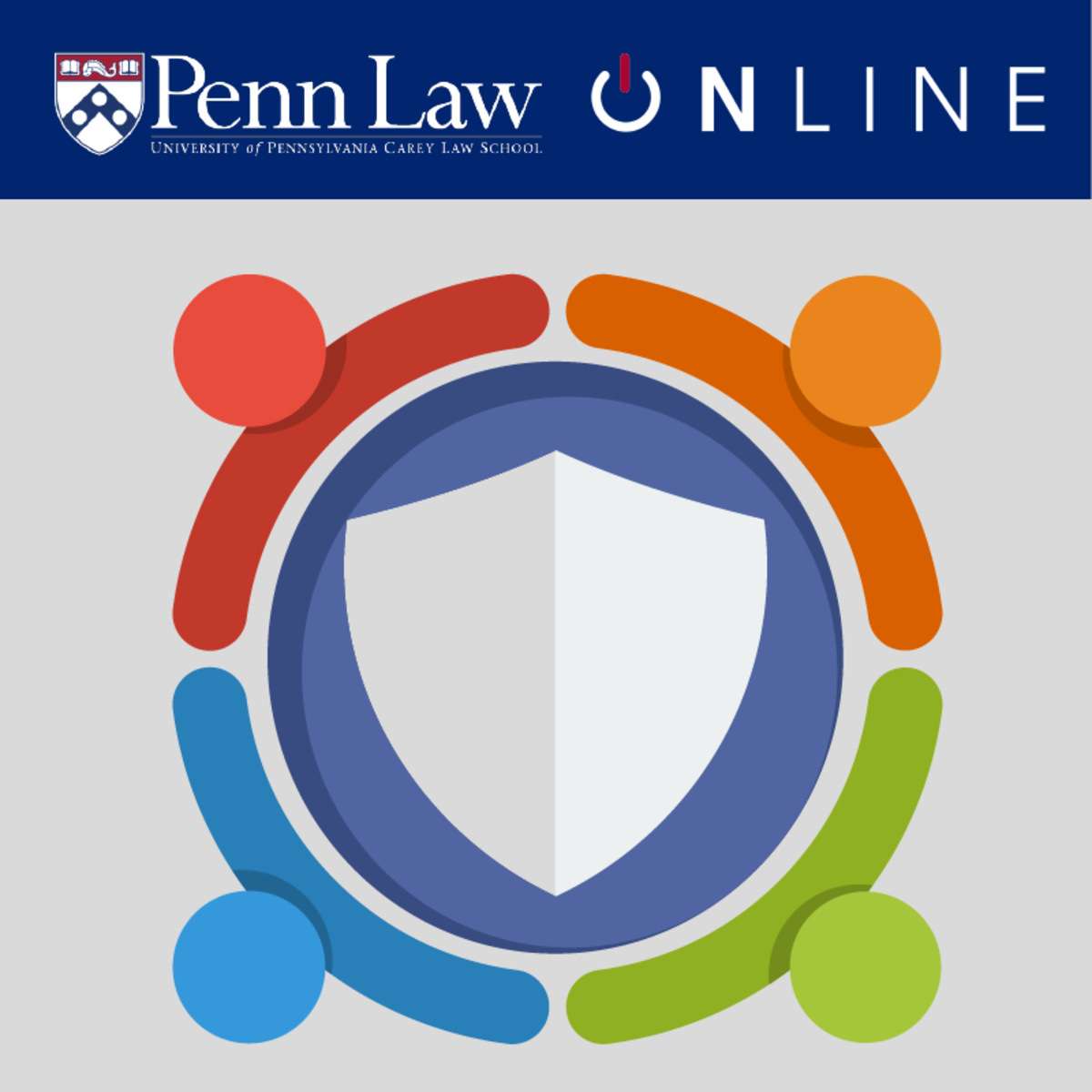IT Security Analyst
barking on a Career as an IT Security Analyst
An IT Security Analyst, at its core, is a guardian of an organization's digital assets. These professionals plan and implement security measures to protect computer networks and systems from unauthorized access, data breaches, and other cyber threats. In an era where information is a valuable currency and cyberattacks are increasingly sophisticated, the role of an IT Security Analyst is more critical than ever. They are the sentinels standing between a company's sensitive information and the multitude of threats lurking in the digital landscape.
Working as an IT Security Analyst can be both engaging and exciting. Imagine being on the front lines of cyber defense, constantly learning about new attack vectors and devising strategies to thwart them. There's a dynamic nature to the work; it's a continuous game of cat and mouse, requiring sharp analytical skills and a proactive mindset to stay ahead of malicious actors. Furthermore, the impact of an IT Security Analyst's work is tangible – they are directly responsible for safeguarding an organization's reputation, financial stability, and customer trust.
Introduction to IT Security Analyst Role
This section delves into the foundational knowledge of what it means to be an IT Security Analyst, exploring the role's significance and its place within the broader cybersecurity field. Understanding these fundamentals is key for anyone considering this career path.
Defining the Role and Its Significance in Modern Organizations
An IT Security Analyst is a professional responsible for protecting an organization's computer systems and networks from a wide array of cyber threats. Their primary goal is to ensure the confidentiality, integrity, and availability of digital assets. This involves a multifaceted approach, from implementing preventative measures to responding to active security incidents. The significance of this role in modern organizations cannot be overstated, as data breaches and cyberattacks can lead to severe financial losses, reputational damage, and legal repercussions.
In today's interconnected world, nearly every organization, regardless of size or industry, relies on digital infrastructure. This reliance makes them potential targets for cybercriminals. IT Security Analysts are crucial in mitigating these risks by establishing and maintaining robust security postures. They are the vanguards who ensure that sensitive information, from customer data to intellectual property, remains secure.
The responsibilities of an IT Security Analyst are diverse and dynamic, adapting to the ever-evolving threat landscape. They are tasked with understanding the organization's IT environment, identifying potential vulnerabilities, and implementing appropriate safeguards. This proactive approach helps prevent security incidents before they occur, minimizing potential damage.
Industries Where IT Security Analysts Are Critical
While IT Security Analysts are needed across virtually all sectors, their role is particularly critical in industries that handle large volumes of sensitive data or are prime targets for cyberattacks. The financial services industry, for example, which processes vast amounts of monetary transactions and personal financial information, heavily relies on IT Security Analysts to protect against fraud and data theft. Similarly, healthcare organizations must safeguard patient health information, making robust cybersecurity measures, and thus skilled analysts, indispensable.
Government agencies, at all levels, are also major employers of IT Security Analysts. These organizations handle classified information and critical infrastructure, making them high-value targets for state-sponsored attacks and cyber-espionage. The defense sector, in particular, requires stringent security protocols and highly skilled analysts to protect national security interests.
Other industries where IT Security Analysts play a vital role include e-commerce and retail, which process significant customer payment data; technology companies, which develop and manage critical software and hardware; and educational institutions, which store personal data of students and staff and are increasingly targeted by ransomware attacks. Essentially, any organization that values its data and digital operations needs the expertise of IT Security Analysts.
Explaining the Role's Alignment with Cybersecurity Frameworks
The work of an IT Security Analyst is often guided by established cybersecurity frameworks. These frameworks provide a structured approach to managing cybersecurity risk and implementing security controls. Examples of widely recognized frameworks include the NIST Cybersecurity Framework, ISO 27001, and CIS Controls. IT Security Analysts use these frameworks to assess an organization's current security posture, identify gaps, and prioritize actions to improve security.
Aligning with such frameworks ensures a comprehensive and standardized approach to security. It helps organizations meet regulatory requirements and industry best practices. For an IT Security Analyst, understanding and applying these frameworks is a core competency, enabling them to develop and implement effective security strategies that are both robust and compliant.
Cybersecurity frameworks also promote a common language and understanding of security concepts across different departments and organizations. This is crucial for effective communication and collaboration, both internally and with external partners or regulatory bodies. By adhering to these frameworks, IT Security Analysts contribute to building a more resilient and secure digital environment for their organizations.
Core Responsibilities and Daily Tasks
Understanding the day-to-day realities of an IT Security Analyst is crucial for anyone considering this career. This section outlines the typical duties and tasks that define the role, offering a practical glimpse into the profession.
Monitoring Network Traffic for Vulnerabilities
A significant part of an IT Security Analyst's day involves monitoring network traffic and security alerts. This is akin to a digital watchtower, where analysts keep a vigilant eye out for any signs of suspicious activity or potential intrusions. They utilize various tools, such as Security Information and Event Management (SIEM) systems, to collect and analyze log data from different sources across the network.
When anomalies or potential threats are detected, the analyst investigates further to determine the nature and severity of the incident. This could involve analyzing network packets, reviewing system logs, and correlating information from multiple sources. The goal is to identify and understand potential vulnerabilities or ongoing attacks before they can cause significant harm.
This continuous monitoring is a proactive defense strategy. By identifying weaknesses or early indicators of an attack, IT Security Analysts can take preemptive action to fortify defenses, patch vulnerabilities, or isolate affected systems, thereby minimizing the potential impact of a security incident.
For those looking to understand the tools and techniques used in network monitoring, several online courses provide excellent foundational knowledge. These courses often cover how to use specific software and interpret network data effectively.
Incident Response and Breach Mitigation
When a security breach occurs, IT Security Analysts are on the front line, leading the efforts to contain and mitigate the damage. This is a critical responsibility that requires quick thinking, technical expertise, and a calm demeanor under pressure. The first step is often to identify the scope and nature of the breach – what systems are affected, what data has been compromised, and how did the attackers gain entry?
Once the breach is understood, analysts work to contain the incident, preventing further unauthorized access or data loss. This might involve isolating affected systems from the network, blocking malicious IP addresses, or disabling compromised user accounts. Following containment, the focus shifts to eradicating the threat, which could mean removing malware, patching vulnerabilities exploited in the attack, and restoring affected systems from backups.
After the immediate threat is neutralized, IT Security Analysts play a key role in the recovery process and in post-incident analysis. This includes documenting the incident, understanding the root cause, and recommending changes to prevent similar breaches in the future. This continuous improvement cycle is vital for enhancing an organization's overall security posture.
Developing strong incident response skills is crucial. Online courses can offer structured learning on how to create and implement effective incident response plans.
Conducting Risk Assessments and Audits
IT Security Analysts are also responsible for proactively identifying and evaluating security risks within an organization. This involves conducting regular risk assessments and security audits. Risk assessments aim to identify potential threats and vulnerabilities, analyze the likelihood and potential impact of these risks, and recommend appropriate controls to mitigate them.
Security audits, on the other hand, involve examining an organization's existing security controls and practices to ensure they are effective and compliant with relevant policies, standards, and regulations. This might include reviewing system configurations, access controls, security policies, and incident response procedures. Audits help to verify that security measures are functioning as intended and identify any areas for improvement.
The findings from risk assessments and audits provide valuable insights for decision-making regarding security investments and priorities. IT Security Analysts use this information to develop and refine security strategies, ensuring that resources are allocated effectively to address the most significant risks. This proactive approach is fundamental to maintaining a strong and resilient security posture.
Understanding risk management and auditing is fundamental. Consider these resources to build a strong foundation in these areas.
Essential Skills and Competencies
Success as an IT Security Analyst hinges on a unique blend of technical prowess, analytical thinking, and interpersonal abilities. This section outlines the key skills and competencies that aspiring analysts should cultivate.
Technical Skills: Firewalls, Encryption, SIEM Tools
A strong foundation in technical skills is paramount for an IT Security Analyst. This includes a deep understanding of networking concepts, operating systems (like Windows, Linux, and macOS), and security technologies. Proficiency in configuring and managing firewalls is essential for controlling network traffic and preventing unauthorized access. Knowledge of encryption techniques and protocols is also crucial for protecting data both in transit and at rest.
Familiarity with Security Information and Event Management (SIEM) tools is a core requirement. SIEM systems aggregate and analyze security data from various sources, helping analysts detect and respond to threats more effectively. Experience with vulnerability scanning tools (like Nessus or Qualys) and intrusion detection/prevention systems (IDS/IPS) like Snort is also highly valued.
Furthermore, understanding cloud security principles and tools is increasingly important as more organizations migrate their infrastructure and applications to the cloud. This includes knowledge of identity and access management (IAM) in cloud environments and securing data on platforms like AWS, Azure, or Google Cloud. Many of these skills can be honed through dedicated online courses focusing on specific technologies. Cybersecurity courses on OpenCourser offer a wide range of options.
To build a strong technical foundation, consider exploring courses that cover networking, operating systems, and specific security tools. These resources can provide practical, hands-on experience.
Soft Skills: Communication, Problem-Solving
While technical skills are crucial, soft skills are equally important for an IT Security Analyst. Effective communication is vital, as analysts often need to explain complex technical issues to non-technical audiences, such as management or other employees. They also need to write clear and concise reports documenting incidents, findings from assessments, and security recommendations.
Strong problem-solving skills are essential for diagnosing security issues, identifying root causes, and developing effective solutions. Analysts must be able to think critically and analytically, often under pressure, to respond to security incidents. The ability to approach problems methodically and creatively is a hallmark of a successful analyst.
Collaboration and teamwork are also key, as IT Security Analysts frequently work with other IT professionals, departments, and sometimes external vendors or law enforcement agencies. Building good working relationships and being able to contribute effectively as part of a team are crucial for success in this field.
Analytical Skills for Threat Detection
A core competency for IT Security Analysts is the ability to analyze vast amounts of data to detect patterns and anomalies that might indicate a security threat. This requires a keen eye for detail and an understanding of what constitutes normal versus suspicious behavior within an IT environment. Analysts must be able to sift through logs, network traffic, and other security data to identify potential indicators of compromise.
Threat intelligence analysis is another important analytical skill. This involves staying informed about the latest cyber threats, attack vectors, and adversary tactics, techniques, and procedures (TTPs). By understanding the current threat landscape, analysts can better anticipate potential attacks and proactively implement defenses.
This analytical mindset also extends to risk assessment, where analysts evaluate the likelihood and potential impact of various threats to prioritize security efforts. The ability to think like an attacker, to understand their motivations and methods, is invaluable in developing effective defensive strategies.
Developing sharp analytical skills is an ongoing process. Courses focusing on data analysis, threat intelligence, and critical thinking can be beneficial.
Educational Pathways: Formal Education
For those aspiring to enter the field of IT Security, understanding the typical educational routes is a crucial first step. This section explores common degree programs and relevant coursework that can provide a strong foundation for this career.
Relevant Degrees: Computer Science, Cybersecurity
A bachelor's degree in a computer-related field is often the typical entry point for IT Security Analyst roles. Degrees in Computer Science, Cybersecurity, or Information Technology are particularly relevant. These programs provide a broad understanding of computer systems, networks, programming, and information security principles, which are foundational to the analyst role.
A Computer Science degree often offers a strong theoretical and practical grounding in how computer systems work, including software development, data structures, and algorithms. This knowledge can be invaluable for understanding how vulnerabilities arise and how to secure systems at a fundamental level. Many computer science programs now offer specializations or elective tracks in cybersecurity.
A dedicated Cybersecurity degree program focuses more specifically on the principles and practices of protecting information systems. Coursework typically covers areas like network security, cryptography, ethical hacking, digital forensics, and security policies. This specialized knowledge can give graduates a direct pathway into security-focused roles.
Key Coursework: Network Security, Ethical Hacking
Within relevant degree programs, certain coursework is particularly beneficial for aspiring IT Security Analysts. Network security courses are fundamental, as they cover the principles of securing computer networks, including firewalls, intrusion detection systems, VPNs, and wireless security. A strong understanding of network protocols and architectures is essential for an analyst.
Courses in ethical hacking, also known as penetration testing, provide hands-on experience in identifying and exploiting vulnerabilities in systems, but from a defensive perspective. This "think like an attacker" approach is invaluable for understanding how to protect against real-world threats. Such courses often involve practical labs and simulations.
Other key coursework might include cryptography, which deals with the principles of secure communication; operating systems security, focusing on hardening and securing different OS platforms; and courses on security policies, compliance, and risk management. An understanding of programming and scripting languages like Python can also be highly beneficial for automating tasks and analyzing security data.
These areas are often covered in depth by specialized online courses, which can supplement formal education or provide focused learning.
Advanced Degrees for Specialized Roles
While a bachelor's degree is often sufficient for entry-level and many mid-level IT Security Analyst positions, an advanced degree, such as a Master's in Cybersecurity or a related field, can open doors to more specialized or leadership roles. A master's degree can provide deeper knowledge in specific areas of cybersecurity, such as digital forensics, security architecture, or cyber policy and governance.
For individuals aiming for roles like Security Architect, Cybersecurity Manager, or Chief Information Security Officer (CISO), an advanced degree combined with significant experience is often preferred or even required. These roles typically involve more strategic planning, policy development, and leadership responsibilities.
An advanced degree can also be beneficial for those interested in research or academic positions in cybersecurity. Furthermore, in a competitive job market, a master's degree can sometimes provide an edge, demonstrating a higher level of commitment and expertise in the field. However, it's important to weigh the investment in an advanced degree against career goals and the value of practical experience and certifications.
Online Learning and Self-Study Pathways
For individuals seeking to enter the IT security field, particularly career changers or those who prefer a more flexible learning approach, online courses and self-study offer viable and increasingly popular pathways. This section explores the benefits and practicalities of these non-traditional learning routes.
Benefits of Online Courses and Bootcamps
Online courses and cybersecurity bootcamps have become accessible and effective ways to gain the necessary skills for an IT Security Analyst role. One of the primary benefits is flexibility; learners can often study at their own pace and on their own schedule, making it easier to balance learning with work or other commitments. Many online platforms offer a wide array of courses, from introductory concepts to advanced specializations, taught by industry experts and academic institutions.
Bootcamps, in particular, offer intensive, focused training designed to quickly equip individuals with job-ready skills. They often emphasize practical, hands-on learning and may include career services to help graduates find employment. The curriculum in these programs is typically designed to align with current industry needs and popular certifications.
Online learning can also be more cost-effective than traditional degree programs. While some courses and bootcamps can be a significant investment, many affordable and even free resources are available. OpenCourser, for example, aggregates thousands of online courses, making it easier to find options that fit your budget and learning goals. The platform's "Learner's Guide" also offers valuable tips on how to effectively learn from online resources.
Consider these courses as starting points for exploring the breadth of online cybersecurity education. They cover foundational and specialized topics relevant to IT security.
[course] Cybersecurity Awareness and InnovationSelf-Paced Learning for Certifications
Many valuable IT security certifications can be achieved through self-paced learning using online courses, books, and practice exams. Certifications like CompTIA Security+, Certified Ethical Hacker (CEH), and Systems Security Certified Practitioner (SSCP) are well-recognized in the industry and can significantly boost a candidate's resume. Online platforms often provide dedicated courses specifically designed to prepare learners for these certification exams.
The advantage of self-paced learning is the ability to focus on areas where you need the most improvement and to spend as much time as necessary to master the material. This approach requires discipline and self-motivation, but it allows for a highly personalized learning experience. Many learners create their own study plans, combining various resources to cover all exam objectives comprehensively.
Utilizing online communities and forums can also be beneficial during self-study. These platforms allow learners to ask questions, share resources, and connect with others who are preparing for the same certifications. This collaborative aspect can provide support and motivation throughout the learning journey. OpenCourser's course pages often feature reviews and syllabus information that can help you structure your self-study plan.
These resources are excellent for individuals preparing for industry certifications at their own pace. They cover a range of topics that are commonly tested in certification exams.
Hands-on Labs and Virtual Environments
Practical, hands-on experience is crucial in cybersecurity. Many online courses and self-study resources incorporate hands-on labs and virtual environments where learners can practice their skills in a safe and controlled setting. These labs allow students to experiment with security tools, practice ethical hacking techniques, configure security controls, and respond to simulated security incidents without affecting real-world systems.
Virtual labs can replicate complex network environments, providing realistic scenarios for learners to tackle. This experiential learning is invaluable for reinforcing theoretical knowledge and developing practical problem-solving abilities. Some platforms offer access to sophisticated virtual labs as part of their course offerings, while others provide guidance on setting up personal lab environments using virtualization software.
For aspiring IT Security Analysts, actively seeking out opportunities for hands-on practice is highly recommended. This could involve participating in capture-the-flag (CTF) competitions, contributing to open-source security projects, or setting up a home lab to experiment with different security tools and techniques. This practical application of knowledge is what truly builds competence and confidence in the field.
Look for courses that emphasize practical application through labs and projects. This hands-on experience is critical for developing real-world skills.
Certifications and Professional Development
In the dynamic field of IT security, certifications and continuous professional development are not just beneficial—they are often essential. This section explores key certifications and the importance of ongoing learning to stay ahead of evolving threats.
Key Certifications: CISSP, CEH, CompTIA Security+
Several certifications are highly regarded in the IT security industry and can significantly enhance an IT Security Analyst's career prospects. The CompTIA Security+ is often considered a foundational certification, validating core cybersecurity skills and knowledge. It's a good starting point for those new to the field and is recognized globally.
For those looking to specialize in ethical hacking and penetration testing, the Certified Ethical Hacker (CEH) certification from EC-Council is a popular choice. It demonstrates proficiency in understanding and identifying vulnerabilities from an attacker's perspective. Another highly respected and more advanced certification is the Certified Information Systems Security Professional (CISSP) from (ISC)². The CISSP is aimed at experienced security practitioners and covers a broad range of security domains, often a prerequisite for senior and management roles.
Other notable certifications include those offered by GIAC (Global Information Assurance Certification), such as the GSEC (GIAC Security Essentials Certification), and vendor-specific certifications. Choosing the right certifications often depends on an individual's career goals, experience level, and areas of specialization.
These books provide comprehensive knowledge relevant to various IT security certifications. They can serve as excellent study companions.
Continuous Learning for Evolving Threats
The cybersecurity landscape is constantly changing, with new threats, vulnerabilities, and attack techniques emerging regularly. Therefore, continuous learning is not just recommended but essential for IT Security Analysts to remain effective in their roles. This involves staying up-to-date with the latest security trends, threat intelligence, and advancements in security technologies.
Professional development can take many forms, including attending industry conferences and webinars, reading security blogs and publications, participating in online forums and communities, and taking advanced training courses. Many certifications also require ongoing education credits (CPEs or CEUs) to maintain active status, further encouraging continuous learning.
A commitment to lifelong learning is a hallmark of a successful IT Security Analyst. The ability to adapt to new challenges and acquire new skills quickly is crucial in a field that evolves at such a rapid pace. This proactive approach to learning ensures that analysts are always prepared to defend against the latest threats.
Vendor-Specific Certifications (e.g., Cisco, AWS)
In addition to general cybersecurity certifications, vendor-specific certifications can also be highly valuable, particularly for roles that involve working extensively with specific technologies or platforms. Companies like Cisco, Microsoft, Amazon Web Services (AWS), and Google Cloud offer certifications that validate expertise in securing their respective products and services.
For example, if an organization heavily utilizes AWS cloud infrastructure, an AWS Certified Security - Specialty certification can be very beneficial for an IT Security Analyst working there. Similarly, Cisco certifications like CCNA Security or CCNP Security are valuable for roles focused on network security using Cisco equipment. These certifications demonstrate a deep understanding of the security features and best practices for those specific vendor environments.
Vendor-specific certifications often complement general cybersecurity knowledge by providing specialized skills. They can make a candidate more attractive to employers who use those particular technologies and can lead to more specialized and potentially higher-paying roles. OpenCourser lists many courses that can help prepare for these vendor-specific exams, often searchable by provider or technology like AWS security or Cisco security.
Career Progression and Opportunities
The role of an IT Security Analyst can be a stepping stone to various advanced positions within the cybersecurity field. This section outlines typical career trajectories and the opportunities available as analysts gain experience and expertise.
Entry-Level Roles: Security Technician, SOC Analyst
For individuals starting their careers in IT security, common entry-level roles include Security Technician or Security Operations Center (SOC) Analyst. As a Security Technician, responsibilities might involve assisting with the implementation and maintenance of security tools, troubleshooting basic security issues, and helping with user security awareness. This role provides a practical introduction to the operational aspects of cybersecurity.
A SOC Analyst typically works within a Security Operations Center, monitoring security alerts, triaging incidents, and performing initial investigations. This role is often fast-paced and provides excellent experience in real-time threat detection and response. SOC Analysts use SIEM tools and other security technologies to identify and escalate potential security incidents.
These entry-level positions are crucial for building foundational skills and gaining practical experience in the field. They offer opportunities to learn from more senior analysts and to understand the day-to-day challenges of protecting an organization's assets. With dedication and continuous learning, individuals in these roles can quickly progress to more advanced positions.
For those aiming for entry-level SOC analyst roles, these courses offer a solid introduction to the required skills and tools.
Mid-Career: Penetration Tester, Security Architect
With a few years of experience and potentially some specialized certifications, IT Security Analysts can move into mid-career roles such as Penetration Tester or Security Architect. Penetration Testers, also known as ethical hackers, specialize in proactively identifying and exploiting vulnerabilities in systems and applications to help organizations understand and improve their security posture. This role requires a deep understanding of attack techniques and security weaknesses.
A Security Architect is responsible for designing and overseeing the implementation of an organization's security infrastructure. This involves developing security policies and standards, selecting and integrating security technologies, and ensuring that security is built into IT systems and processes from the ground up. It's a role that requires both strong technical knowledge and strategic thinking.
Other mid-career paths could include roles like Security Consultant, where individuals advise organizations on their security strategies, or Security Engineer, focusing on building and maintaining security solutions. These roles often demand a greater depth of expertise in specific security domains.
Aspiring penetration testers and security architects can benefit from courses that offer advanced technical skills and strategic security planning.
Leadership: CISO, Cybersecurity Manager
For seasoned IT security professionals with extensive experience, proven leadership skills, and often advanced degrees or certifications like the CISSP or CISM, leadership roles such as Cybersecurity Manager or Chief Information Security Officer (CISO) become attainable. A Cybersecurity Manager typically oversees a team of security analysts and engineers, manages security projects, and is responsible for the day-to-day operations of the security department.
The CISO is a senior executive role responsible for establishing and maintaining the enterprise vision, strategy, and program to ensure information assets and technologies are adequately protected. The CISO's responsibilities include managing cybersecurity risk, ensuring compliance with regulations, developing security policies, and advising senior management on security matters. This role requires a blend of deep technical understanding, strong business acumen, and excellent leadership and communication skills.
Progression to these leadership positions typically requires a significant track record of success in various cybersecurity roles, a deep understanding of the business context of security, and the ability to lead and inspire teams. Continuous professional development, including management and leadership training, is often crucial for reaching these top-tier positions in the cybersecurity field.
Industry Tools and Technologies
To excel as an IT Security Analyst, familiarity with a range of industry-standard tools and technologies is essential. This section provides an overview of some of the key categories of tools that analysts use in their daily work.
SIEM Tools (Splunk, LogRhythm)
Security Information and Event Management (SIEM) tools are a cornerstone of modern security operations. Prominent examples include Splunk and LogRhythm. These platforms collect, aggregate, and analyze security event data from a multitude of sources across an organization's IT infrastructure, such as network devices, servers, applications, and security appliances. This centralized view enables analysts to detect patterns, anomalies, and potential security incidents that might otherwise go unnoticed.
IT Security Analysts use SIEM tools to monitor for security alerts, investigate suspicious activities, and generate reports on security events and trends. These tools often incorporate features for real-time alerting, threat intelligence integration, and compliance reporting. Proficiency in using and configuring SIEM systems is a highly sought-after skill for security analysts.
Many online courses offer training on specific SIEM platforms, providing hands-on experience with their functionalities. Learning how to effectively query data, create custom dashboards, and develop correlation rules within a SIEM environment is crucial for maximizing its utility in threat detection and response.
Penetration Testing Frameworks (Metasploit)
For IT Security Analysts involved in vulnerability assessment and penetration testing, familiarity with penetration testing frameworks is key. The Metasploit Framework is one of the most well-known and widely used open-source penetration testing tools. It provides a vast collection of exploits, payloads, and auxiliary modules that allow security professionals to simulate attacks and test the security of systems and networks.
Understanding how to use such frameworks enables analysts to identify and validate vulnerabilities, assess the potential impact of successful exploits, and provide actionable recommendations for remediation. These tools are used in ethical hacking engagements to proactively uncover weaknesses before malicious attackers can exploit them.
While powerful, these tools must be used responsibly and ethically, typically with explicit permission from the organization whose systems are being tested. Online courses and hands-on labs often cover the use of Metasploit and similar frameworks, teaching learners how to conduct penetration tests in a controlled and ethical manner.
These courses offer practical training in ethical hacking and the use of penetration testing tools, essential for analysts focused on offensive security.
Cloud Security Tools (AWS Security Hub)
As organizations increasingly adopt cloud computing, IT Security Analysts must be proficient in using cloud-native security tools and services. Major cloud providers like Amazon Web Services (AWS), Microsoft Azure, and Google Cloud Platform (GCP) offer a suite of security tools designed to protect resources hosted in their environments. For example, AWS Security Hub provides a comprehensive view of security alerts and compliance status across an AWS account.
These tools help analysts manage identity and access, configure network security controls (like security groups and network ACLs), monitor for threats, encrypt data, and ensure compliance with industry standards in the cloud. Understanding the shared responsibility model for cloud security is also crucial – knowing which security tasks are handled by the cloud provider and which are the responsibility of the customer.
Given the rapid adoption of cloud services, expertise in cloud security tools is a valuable asset for IT Security Analysts. Many online courses, including those on OpenCourser's cloud computing section, focus specifically on securing cloud environments and preparing for cloud security certifications offered by major providers.
Challenges and Emerging Trends
The field of IT security is characterized by constant evolution, with new challenges and technological advancements continually reshaping the landscape. Staying abreast of these trends is critical for IT Security Analysts.
AI-Driven Cyberattacks and Defense
Artificial Intelligence (AI) is a double-edged sword in cybersecurity. On one hand, AI-powered tools are enhancing defensive capabilities by enabling faster and more accurate threat detection, automating incident response, and analyzing vast amounts of security data to identify subtle patterns of malicious activity. AI can help predict potential threats and reduce response times, which is crucial in a talent-strapped industry.
On the other hand, attackers are also leveraging AI to create more sophisticated and evasive attacks. This includes AI-generated phishing emails that are highly convincing, deepfake technologies for impersonation and disinformation, and malware that can adapt its behavior to evade detection. The rise of "shadow AI" – unsanctioned AI models used within organizations without proper governance – also presents significant data security risks.
IT Security Analysts will increasingly need to understand both the offensive and defensive applications of AI. This may involve using AI-driven security tools effectively and developing strategies to counter AI-powered attacks. The future will likely see a continuous arms race between AI-enhanced attacks and AI-fortified defenses.
Understanding the implications of AI in cybersecurity is becoming increasingly important. These courses offer insights into AI applications in security and related privacy concerns.
Zero-Trust Architecture Adoption
The traditional perimeter-based security model (the "castle and moat" approach) is becoming less effective as organizations adopt cloud services, remote work, and mobile devices. In response, Zero Trust Architecture (ZTA) is gaining widespread adoption. Zero Trust is a security model based on the principle of "never trust, always verify." It assumes that threats can originate from both outside and inside the network, so no user or device is automatically trusted.
Implementing a Zero Trust strategy involves verifying every user and device attempting to access resources, enforcing least-privilege access (granting only the necessary permissions), and continuously monitoring for suspicious activity. This approach enhances security by limiting the potential impact of a compromised account or device and preventing lateral movement by attackers within the network.
IT Security Analysts play a key role in designing, implementing, and managing Zero Trust environments. This requires a deep understanding of identity and access management (IAM), network segmentation, multi-factor authentication (MFA), and endpoint security. The shift towards Zero Trust represents a fundamental change in how security is approached and will be a significant trend for analysts to navigate. More information on identity management can be found in OpenCourser's resources on identity and access management.
IoT and Cloud Security Challenges
The proliferation of Internet of Things (IoT) devices and the continued migration to cloud computing present unique security challenges. IoT devices, ranging from smart sensors to industrial control systems, often have limited security capabilities and can expand an organization's attack surface significantly if not properly secured. Securing these devices requires specific strategies, including network segmentation, regular patching (if possible), and monitoring for anomalous behavior.
Cloud security, while offering many benefits, also introduces new complexities. Organizations must navigate the shared responsibility model, ensuring they understand and implement their security obligations in the cloud. Challenges include misconfigurations of cloud services (a common source of breaches), securing data in multi-cloud or hybrid environments, and managing access to cloud resources effectively.
IT Security Analysts need to be adept at addressing the security risks associated with both IoT and cloud environments. This includes understanding the specific vulnerabilities of IoT devices, implementing appropriate security controls for cloud workloads, and leveraging cloud-native security tools. As these technologies become even more pervasive, the demand for analysts with expertise in these areas will continue to grow. You can explore a variety of information security courses on OpenCourser to deepen your knowledge.
These courses provide insights into securing cloud environments and understanding the broader landscape of connected devices.
Ethical, Legal, and Compliance Considerations
IT Security Analysts operate within a complex web of ethical, legal, and compliance requirements. Understanding and adhering to these considerations is not just a matter of best practice but often a legal necessity.
GDPR, HIPAA, and CCPA Compliance
Numerous regulations govern how organizations collect, process, and protect personal data. IT Security Analysts must be aware of and help their organizations comply with relevant data privacy laws. Prominent examples include the General Data Protection Regulation (GDPR) in Europe, the Health Insurance Portability and Accountability Act (HIPAA) in the United States (for healthcare information), and the California Consumer Privacy Act (CCPA).
These regulations often mandate specific security controls, incident notification procedures, and individual rights regarding their personal data. Analysts may be involved in implementing technical safeguards to meet these requirements, conducting data privacy impact assessments, and responding to data subject requests. Failure to comply with these laws can result in significant fines and reputational damage.
Staying informed about the evolving landscape of data privacy regulations is crucial, as new laws are frequently introduced and existing ones are updated. Understanding these legal frameworks helps analysts ensure that their organization's security practices are not only effective but also lawful and respectful of individual privacy.
Ethical Hacking Boundaries
Ethical hacking, or penetration testing, is a valuable practice for identifying security weaknesses. However, it must be conducted within strict ethical and legal boundaries. IT Security Analysts performing these activities must always have explicit, written authorization from the organization whose systems they are testing. Testing without permission is illegal and can have severe consequences.
The scope of an ethical hacking engagement should be clearly defined, outlining which systems and methods are permissible for testing. Analysts must respect privacy and confidentiality during testing, avoiding access to or disclosure of sensitive information beyond what is necessary to demonstrate a vulnerability. The goal is to improve security, not to cause harm or disruption.
Professional certifications in ethical hacking often include a strong emphasis on ethics and responsible conduct. Adhering to a professional code of ethics is paramount for maintaining trust and credibility in this specialized area of cybersecurity.
Understanding the ethical responsibilities of a security professional is vital. These resources explore the moral complexities and ethical guidelines in cybersecurity.
Data Privacy and User Consent
Beyond specific regulations, a broader ethical responsibility exists to protect data privacy and respect user consent. IT Security Analysts play a role in ensuring that security measures are implemented in a way that minimizes intrusion into individual privacy. This involves principles like data minimization (collecting only necessary data), purpose limitation (using data only for specified purposes), and ensuring data accuracy.
Transparency with users about how their data is collected, used, and protected is a key ethical principle. Users should be informed and, where appropriate, provide consent for the processing of their personal information. Security practices should be designed to uphold these principles, building trust with users and customers.
The balance between security needs and privacy rights can sometimes be challenging. Ethical dilemmas may arise, for example, when considering the extent of network monitoring or data collection for security purposes. IT Security Analysts must navigate these situations thoughtfully, guided by ethical principles and a commitment to protecting both the organization and the individuals whose data it holds.
Work Environment and Salary Expectations
Understanding the typical work environment and potential compensation is an important factor for anyone considering a career as an IT Security Analyst. This section provides insights into these practical aspects of the role.
Remote vs. On-Site Work Trends
The work environment for IT Security Analysts can vary. Traditionally, many roles were on-site, particularly in organizations with sensitive data or critical infrastructure that required close physical oversight. However, the trend towards remote work has significantly impacted the cybersecurity field as well. Many organizations now offer remote or hybrid work arrangements for security analysts, leveraging technologies that enable secure remote access and collaboration.
According to a 2022 survey by (ISC)², over 70% of cybersecurity professionals work remotely either full-time or part-time. Data from job platforms also indicates a significant number of remote-friendly cybersecurity positions. This shift is driven by factors including the demand for skilled professionals (allowing companies to tap into a wider talent pool) and the desire for work-life balance. However, some roles, especially those in highly secure environments or those requiring hands-on interaction with physical systems, may still necessitate on-site presence.
Remote work in cybersecurity requires strong self-discipline, effective virtual communication skills, and the ability to maintain security hygiene in a home office environment. Organizations, in turn, must implement robust security measures to protect corporate assets accessed remotely, often adopting Zero Trust principles.
The rise of remote work has changed how many industries operate, including cybersecurity. Understanding these trends can help in career planning.
Salary Ranges by Experience and Region
Salaries for IT Security Analysts are generally competitive, reflecting the high demand for their skills. Compensation can vary significantly based on factors such as years of experience, level of education, certifications held, the industry, and geographic location. According to the U.S. Bureau of Labor Statistics (BLS), the median annual wage for information security analysts was $124,910 in May 2024. The lowest 10 percent earned less than $57,770, and the highest 10 percent earned more than $182,370.
Entry-level positions will typically command salaries at the lower end of the range, while experienced analysts, particularly those in senior or specialized roles, can earn significantly more. For instance, salaries for experienced analysts with four to six years of experience can range from £47,500 to £60,000 in the UK, with senior analysts potentially earning over £100,000 in leadership roles. Industries like information, finance and insurance, and computer manufacturing often offer higher median salaries.
Geographic location also plays a role, with metropolitan areas and regions with a high concentration of tech companies or government agencies often offering higher pay. For example, states like Washington, New York, and California in the U.S. tend to have higher average salaries for information security analysts. It's advisable to research salary benchmarks for specific regions and experience levels when considering this career path. The Bureau of Labor Statistics Occupational Outlook Handbook is a valuable resource for U.S. salary and job outlook data.
Stress Management in High-Stakes Roles
The role of an IT Security Analyst can be demanding and, at times, stressful. Analysts are often responsible for protecting critical assets and may need to respond to security incidents at any hour, potentially working long or irregular hours, especially during a crisis. The constant pressure to stay ahead of evolving threats and the high stakes involved in preventing or mitigating breaches can contribute to stress.
Effective stress management techniques are therefore important for individuals in this field. This can include maintaining a healthy work-life balance, practicing mindfulness or relaxation techniques, and having strong support networks both professionally and personally. Organizations also have a role to play in fostering a supportive work environment that acknowledges the pressures of the job and provides resources for employee well-being.
Despite the potential for stress, many IT Security Analysts find their work highly rewarding due to the intellectual challenge, the opportunity to make a significant impact, and the dynamic nature of the field. Developing resilience and coping mechanisms can help analysts thrive in this high-stakes environment and maintain long-term career satisfaction.
Frequently Asked Questions (FAQs)
This section addresses some common questions that individuals exploring a career as an IT Security Analyst often have.
How to Start a Career Without a Degree?
While a bachelor's degree is a common entry point, it is possible to start a career as an IT Security Analyst without one, though it may require a more focused and persistent effort. Practical experience, industry certifications, and a strong portfolio of skills can sometimes outweigh the lack of a formal degree, especially for entry-level positions. Building a home lab, participating in capture-the-flag competitions, and contributing to open-source security projects can demonstrate practical skills and passion for the field.
Obtaining entry-level IT certifications like CompTIA A+ or Network+, followed by security-focused certifications like CompTIA Security+ or (ISC)² SSCP, can be a viable route. These certifications validate foundational knowledge and can help get a foot in the door for roles like help desk technician or junior IT administrator, which can then serve as stepping stones to a security analyst position. Networking with professionals in the field and seeking out mentorship opportunities can also be invaluable.
Some individuals transition into cybersecurity from related IT roles such as system administration or network engineering, leveraging their existing technical skills and then acquiring specialized security knowledge through self-study, online courses, or bootcamps. Persistence, a strong desire to learn, and the ability to demonstrate practical capabilities are key for those pursuing this path. OpenCourser's Learner's Guide provides tips on self-learning and structuring your own curriculum.
These books can provide foundational knowledge and practical insights valuable for those starting without a formal degree, focusing on practical skills and industry understanding.
Is Programming Knowledge Essential?
While not always a strict requirement for every entry-level IT Security Analyst role, programming and scripting knowledge is highly beneficial and increasingly sought after. Understanding programming concepts helps analysts comprehend how software vulnerabilities arise and how malware functions. Languages like Python are particularly popular in cybersecurity for automating tasks, analyzing data, and developing security tools.
For more advanced roles, such as penetration testing or security software development, strong programming skills are often essential. Even for general analyst roles, the ability to write simple scripts can significantly improve efficiency in tasks like log analysis, data parsing, or automating repetitive security checks.
Aspiring analysts are encouraged to develop at least a basic understanding of scripting languages. Many online courses and resources are available for learning Python and other relevant languages, often tailored to cybersecurity applications. While you might not be writing complex software, the ability to read and understand code, and to write scripts to aid your analytical work, is a valuable asset.
Impact of AI on Job Security
The impact of Artificial Intelligence (AI) on job security for IT Security Analysts is a topic of much discussion, and the consensus is nuanced. AI is undoubtedly transforming the cybersecurity landscape, automating many tasks traditionally performed by analysts, such as threat detection, data analysis, and even some aspects of incident response. This can lead to increased efficiency and allow analysts to focus on more complex and strategic issues.
However, AI is also creating new challenges and, consequently, new roles and skill requirements. Malicious actors are using AI to launch more sophisticated attacks, requiring human analysts to develop new defense strategies and understand AI-driven threats. Furthermore, the deployment and management of AI-powered security tools themselves require skilled professionals. There's an increasing demand for skills in data science and AI within cybersecurity.
Rather than replacing IT Security Analysts wholesale, AI is more likely to augment their capabilities and shift the nature of their work. Analysts who can effectively work with AI tools, understand their limitations, and adapt to the evolving threat landscape will likely remain in high demand. The focus may shift from routine tasks to more specialized areas like AI security, threat hunting, and managing complex security architectures. According to an IBM report, while AI automates certain tasks, it also increases the demand for specialized skills to manage AI systems and counter AI-driven attacks.
Certifications vs. Experience: Which Matters More?
Both certifications and experience are highly valued in the IT security field, and often they complement each other rather than being mutually exclusive. Certifications demonstrate a foundational level of knowledge and a commitment to professional development. They can be particularly helpful for individuals entering the field or looking to validate specific skills, making their resumes stand out to potential employers.
Experience, on the other hand, provides practical, real-world problem-solving skills that cannot be fully replicated in a classroom or exam setting. Employers highly value candidates who have hands-on experience in dealing with security incidents, managing security tools, and working in operational environments. Experience often shows an ability to apply knowledge effectively under pressure and adapt to unique situations.
Ideally, a candidate would possess both relevant certifications and practical experience. For entry-level roles, certifications can help bridge the experience gap. As professionals advance in their careers, experience often becomes a more significant factor, though advanced certifications can still be valuable for specialization or moving into leadership roles. Many organizations look for a combination, using certifications as a baseline and experience as a differentiator.
Typical Career Progression Timeline
The career progression timeline for an IT Security Analyst can vary greatly depending on individual aptitude, dedication, opportunities, and the size and type of organization. However, a general trajectory can be outlined. An individual might start in an entry-level role like a SOC Analyst or Security Technician and spend 1-3 years gaining foundational experience and possibly entry-level certifications.
With 3-5 years of experience, an analyst might progress to a mid-level IT Security Analyst role, taking on more responsibility in areas like incident response, vulnerability management, or security tool administration. During this time, pursuing more specialized certifications (e.g., CEH, vendor-specific certs) can aid advancement. After 5-7 years, opportunities for senior analyst roles, team lead positions, or specialization in areas like penetration testing or security architecture may arise.
For those aiming for management or leadership roles like Cybersecurity Manager or CISO, a timeline of 7-10+ years of progressively responsible experience, often coupled with advanced degrees and certifications like CISSP or CISM, is common. It's important to remember that this is a general guide; rapid advancement is possible for highly skilled and motivated individuals, especially in a fast-growing field like cybersecurity.
Global Demand for IT Security Analysts
The global demand for IT Security Analysts is exceptionally high and projected to continue growing robustly. As organizations worldwide become more reliant on digital technologies and cyber threats become more frequent and sophisticated, the need for skilled professionals to protect information assets is paramount. Cybercrime is a global issue, costing trillions of dollars annually, which directly fuels the demand for cybersecurity talent.
The U.S. Bureau of Labor Statistics projects employment of information security analysts to grow 33 percent from 2023 to 2033, much faster than the average for all occupations. This translates to about 17,300 openings projected each year, on average, over the decade. Similar trends are observed in other regions globally. There is a widely acknowledged cybersecurity skills gap, meaning there are more open positions than qualified candidates to fill them.
This high demand translates into strong job security and competitive salaries for qualified IT Security Analysts. The field offers opportunities across various industries and in virtually every country, making it an attractive career path for those with the right skills and dedication. According to a U.S. Department of Labor blog post, there were over 700,000 open cybersecurity roles in the United States as of August 2022, underscoring the immense demand.
Conclusion
The role of an IT Security Analyst is undeniably challenging, requiring a blend of technical acumen, analytical prowess, and a commitment to continuous learning. However, it is also an incredibly rewarding career path, offering the opportunity to play a critical role in protecting organizations from the ever-present threat of cyberattacks. The demand for skilled analysts is high and projected to grow, providing ample opportunities for those who are passionate about cybersecurity and dedicated to mastering its complexities. Whether you are just starting to explore this field, considering a career change, or looking to advance your existing skills, the journey to becoming an IT Security Analyst is one of constant growth and significant impact. With resources like online courses available on OpenCourser and a proactive approach to professional development, aspiring and current analysts can equip themselves to meet the demands of this vital profession.

































